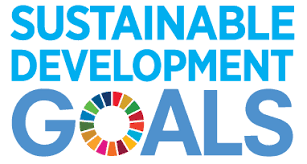The United Nations Sustainable Development Goals: A Global Call to Action
The United Nations Sustainable Development Goals (SDGs), adopted by all UN Member States in 2015, provide a shared blueprint for peace and prosperity for people and the planet by 2030. These 17 interconnected goals address the global challenges we face, including poverty, inequality, climate change, environmental degradation, peace, and justice.
The 17 Sustainable Development Goals:
- No Poverty
- Zero Hunger
- Good Health and Well-Being
- Quality Education
- Gender Equality
- Clean Water and Sanitation
- Affordable and Clean Energy
- Decent Work and Economic Growth
- Industry, Innovation, and Infrastructure
- Reduced Inequality
- Sustainable Cities and Communities
- Responsible Consumption and Production
- Climate Action
<
<
ol><
ol><
ol><
ol><
ol><
ol><
ol><
ol><
li>< a href="#">Life Below Water< / a >< / li >
li > Life on Land< / li >
li > Peace, Justice, and Strong Institutions< / li >
li > Partnerships for the Goals< / li >
/ol>
The SDGs are not only an urgent call to action for governments but also require the active involvement of businesses, civil society organizations, academia, and individuals worldwide. Achieving these goals will require collaboration at all levels to drive transformative change.
The Importance of the SDGs:
The SDGs are crucial in addressing pressing global issues such as poverty eradication, climate change mitigation, sustainable economic growth, social inclusion, and environmental protection. By working towards these goals collectively, we can create a more equitable and sustainable world for present and future generations.
Your Role in Achieving the SDGs:
As individuals, we all have a part to play in achieving the SDGs. Whether it’s through advocating for policy changes, supporting sustainable businesses, promoting social justice initiatives or making environmentally conscious choices in our daily lives – every action counts towards building a better future for all.
Join the global movement towards a more sustainable world by familiarizing yourself with the SDGs and taking action in your own community. Together, we can make a difference and create a world where no one is left behind.
5 Ways to Support the United Nations Sustainable Development Goals
- Educate yourself about the 17 United Nations Sustainable Development Goals (SDGs).
- Spread awareness about the importance of achieving the SDGs in your community.
- Support organizations and initiatives that work towards sustainable development.
- Take actions in your daily life to reduce waste and promote sustainability.
- Advocate for policies that align with the SDGs at local, national, and global levels.
Educate yourself about the 17 United Nations Sustainable Development Goals (SDGs).
To contribute meaningfully to the global effort towards sustainability, it is essential to educate yourself about the 17 United Nations Sustainable Development Goals (SDGs). By understanding the objectives and interconnected nature of these goals, individuals can align their actions and initiatives with the broader mission of creating a more equitable, inclusive, and sustainable world by 2030. Empowering oneself with knowledge about the SDGs is a crucial step towards driving positive change at both local and global levels.
Spread awareness about the importance of achieving the SDGs in your community.
Spreading awareness about the significance of achieving the United Nations Sustainable Development Goals (SDGs) in your community is crucial for driving positive change. By educating and engaging others on the importance of these goals, you can inspire collective action towards creating a more sustainable and equitable future for all. Encouraging discussions, organizing events, and sharing information about the SDGs can empower individuals to take meaningful steps towards contributing to a better world. Together, we can raise awareness and foster a sense of responsibility in our communities to work towards achieving the SDGs and building a brighter tomorrow.
Support organizations and initiatives that work towards sustainable development.
Supporting organizations and initiatives that work towards sustainable development is a crucial step in contributing to the achievement of the United Nations Sustainable Development Goals. By backing these efforts, whether through donations, volunteering, or advocacy, individuals can play a direct role in promoting positive change for our planet and its inhabitants. These organizations are at the forefront of implementing innovative solutions to address global challenges such as poverty, climate change, and inequality. Your support can help them make a significant impact and move us closer to a more sustainable and equitable future for all.
Take actions in your daily life to reduce waste and promote sustainability.
Taking actions in your daily life to reduce waste and promote sustainability is a crucial step towards contributing to the United Nations Sustainable Development Goals. By being mindful of your consumption habits, recycling, composting, and choosing reusable products, you can make a positive impact on the environment. Small changes in your lifestyle can lead to significant reductions in waste generation and help create a more sustainable future for all.
Advocate for policies that align with the SDGs at local, national, and global levels.
Advocating for policies that align with the United Nations Sustainable Development Goals (SDGs) at local, national, and global levels is crucial in driving progress towards a more sustainable and equitable future. By urging decision-makers to prioritize initiatives that support the SDGs, we can create a conducive environment for positive change and ensure that our collective efforts are aligned with the global agenda for development. Through advocacy, we can influence policy directions, promote sustainable practices, and contribute to building a world that is inclusive, resilient, and environmentally conscious.

